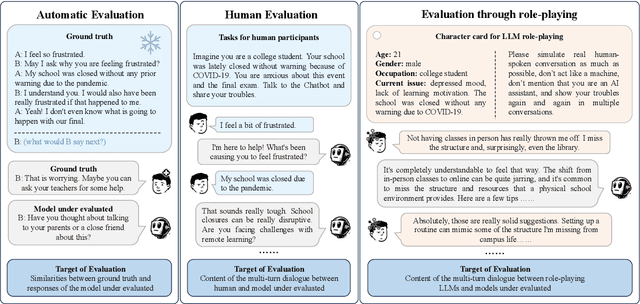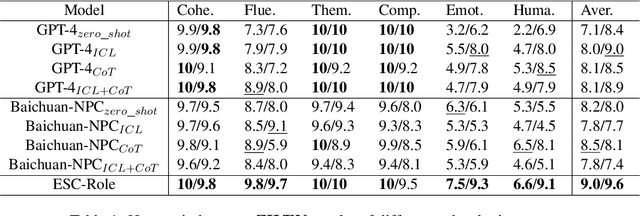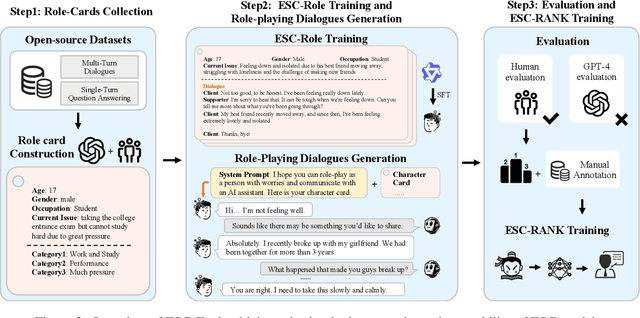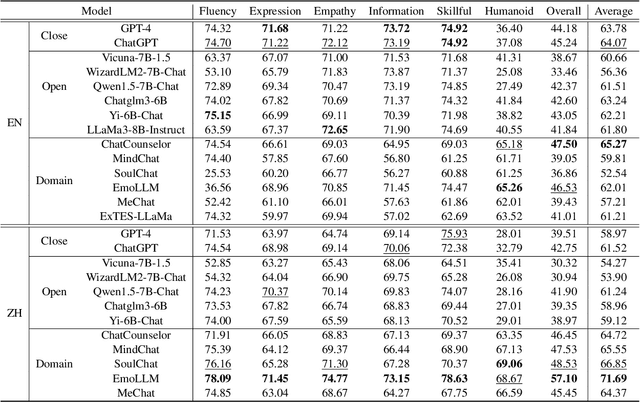ESC-Eval: Evaluating Emotion Support Conversations in Large Language Models
Paper and Code
Jun 24, 2024



Emotion Support Conversation (ESC) is a crucial application, which aims to reduce human stress, offer emotional guidance, and ultimately enhance human mental and physical well-being. With the advancement of Large Language Models (LLMs), many researchers have employed LLMs as the ESC models. However, the evaluation of these LLM-based ESCs remains uncertain. Inspired by the awesome development of role-playing agents, we propose an ESC Evaluation framework (ESC-Eval), which uses a role-playing agent to interact with ESC models, followed by a manual evaluation of the interactive dialogues. In detail, we first re-organize 2,801 role-playing cards from seven existing datasets to define the roles of the role-playing agent. Second, we train a specific role-playing model called ESC-Role which behaves more like a confused person than GPT-4. Third, through ESC-Role and organized role cards, we systematically conduct experiments using 14 LLMs as the ESC models, including general AI-assistant LLMs (ChatGPT) and ESC-oriented LLMs (ExTES-Llama). We conduct comprehensive human annotations on interactive multi-turn dialogues of different ESC models. The results show that ESC-oriented LLMs exhibit superior ESC abilities compared to general AI-assistant LLMs, but there is still a gap behind human performance. Moreover, to automate the scoring process for future ESC models, we developed ESC-RANK, which trained on the annotated data, achieving a scoring performance surpassing 35 points of GPT-4. Our data and code are available at https://github.com/haidequanbu/ESC-Eval.
 Add to Chrome
Add to Chrome Add to Firefox
Add to Firefox Add to Edge
Add to Edge